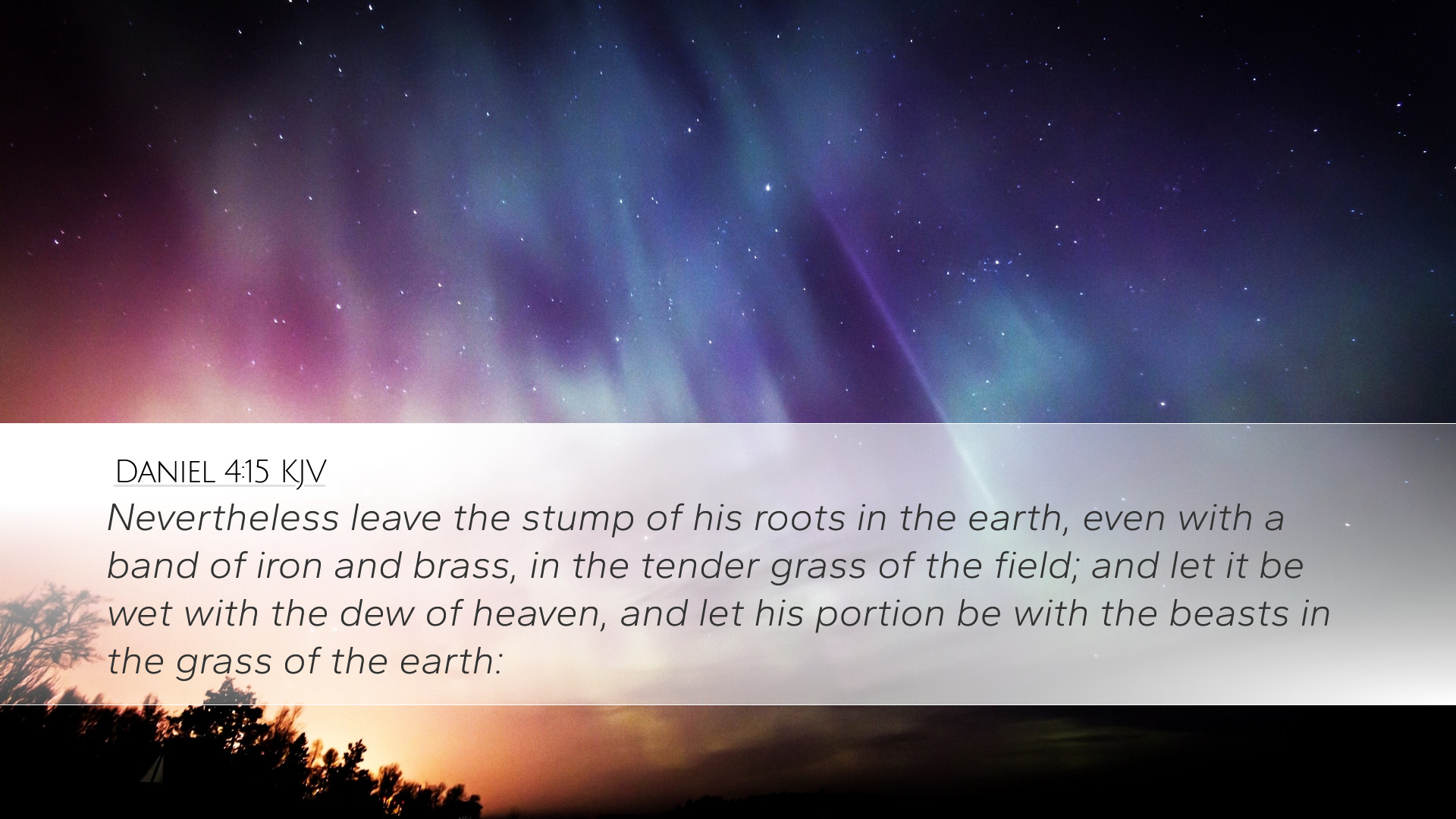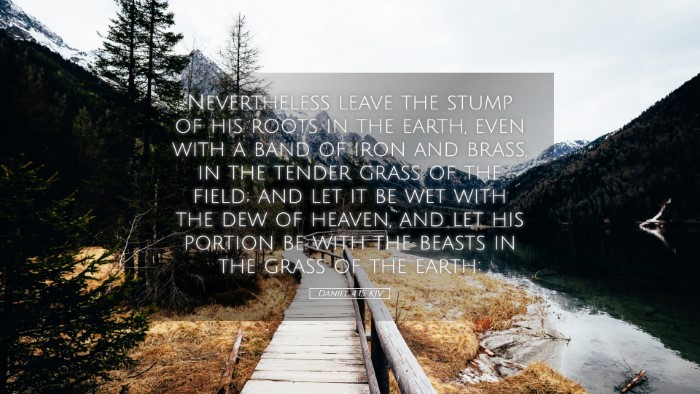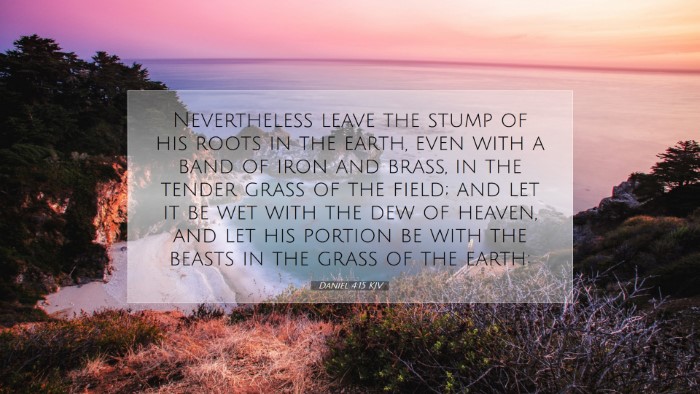Commentary on Daniel 4:15
Daniel 4:15 states: "But let a stump and its roots be left in the earth, bound with a band of iron and bronze, in the tender grass of the field; let it be wet with the dew of heaven, and let his portion be with the beasts in the grass of the earth."
Overview and Context
The passage is part of a dream experienced by King Nebuchadnezzar, which Daniel interprets. This dream serves as a prophetic warning to the king about his pride and subsequent downfall. The imagery of the great tree, representing Nebuchadnezzar's power and glory, being cut down but leaving a stump signifies both judgment and hope for restoration.
Insights from Commentaries
Matthew Henry
Matthew Henry emphasizes that the cutting down of the tree symbolizes God's judgment upon the prideful king. The “stump” signifies that while Nebuchadnezzar will face severe repercussions for his hubris, there remains a remnant of hope. The phrase "bound with a band of iron and bronze" indicates a preservation that is strong and enduring, suggesting that although the king will suffer, God's mercy is intertwined with His justice.
Albert Barnes
Albert Barnes provides a nuanced interpretation, noting that the stump represents a partial preservation of Nebuchadnezzar's kingdom. The use of “roots” implies that the basis of the king's power will remain intact, allowing for the possibility of future restoration. Barnes elaborates that this passage speaks to the divine providence that governs the affairs of nations, and even when judgment is pronounced, God’s ultimate plan incorporates grace and restoration for His people.
Adam Clarke
Adam Clarke offers a detailed exploration of the imagery involved in the suffix of the dream. He remarks that the “dew of heaven” symbolizes divine nourishment, hinting that Nebuchadnezzar's eventual restoration would require a return to humility and dependence on God. The “beasts in the grass of the earth” serves as a metaphor for the fall from nobility to a state of humiliation and insanity, which Nebuchadnezzar will endure prior to his restoration. Clarke asserts that this dream reveals the character of God as both sovereign and compassionate, willing to restore those who repent after judgment.
Theological Implications
The juxtaposition of judgment and restoration within this verse presents powerful theological undertones relevant for pastoral reflection:
- The Sovereignty of God: This passage confirms God's supreme authority over all rulers and nations; He can raise kingdoms high and bring them low at His will.
- Human Pride and Its Consequences: The stark image of the tree being cut down serves as a vivid warning about the dangers of pride. Ministries today can reflect on how pride can lead to downfall and must cultivate humility.
- Grace Amidst Judgment: The image of the stump with roots illustrates God’s mercy. It encourages believers to see hope even when facing consequences, emphasizing that God is always at work to restore.
Practical Applications
This verse calls for deep reflection in both personal and ministerial contexts:
- For Pastors: Consider integrating discussions of pride and humility in sermons. Highlight God's authority and the hope that follows genuine repentance.
- For Students and Scholars: Encourage exploration of themes of divine judgment and grace throughout biblical narratives. Study the implications of humility both in personal faith and leadership roles.
- For Theologians: Engage in dialogue regarding the nature of God’s justice and grace. Reflect on how divine sovereignty interacts with the free will of humanity, particularly in leadership contexts.
Conclusion
Daniel 4:15 serves as a poignant reminder of God’s sovereignty and the duality of His justice and mercy. The prophetic vision of the tree provides rich ground for theological reflection and personal application. Amidst the warnings against pride lies a profound message of hope — that through God's grace, restoration is always possible, even after judgment. This should inspire humility in leadership and dependence on God in all circumstances.


